






other slips and washouts, which to the casual observer appear to be taking an age to fix.
LACK OF progress in repairing the stretch of State Highway 2 between Wairoa and Napier is angering Wairoa Mayor Craig Little.
It’s now 14 months since Cyclone Gabrielle caused multiple slips and washouts and demolished the bridge at Waikare near the settlement of Putorino.
Even before Gabrielle struck, there were plans to build a new road and bridge to avoid the known problems in the Waikare Gorge.
The demolished Waikare bridge has been replaced by a temporary one-way bailey bridge and along SH2, between Wairoa and Napier, there are
Mayor Little can’t understand what’s holding up progress and is at the end of his tether.
“I am 100 percent frustrated with the Transport Agency. I have written also to the Minister for Infrastructure, and am yet to get a reply, and the Prime Minister and I am aware that he is concerned. But we just need to get some reality and urgency into the pres-
ent crisis,” he told Rural News Little says it seems that bureaucracy in all its forms is holding up and blocking the work.
He claims the Transport Agency has been consulting on what needs to be done, but everyone in the area knows right now exactly what must be done.
He says there is also talk of the railway line being reopened, but he says an extra passing lane on the road would be of more use.
“We just need some common sense
to prevail and get the work done,” he says.
Little says, if anything, the situation has got worse for people trying to travel between Wairoa and Napier with the way traffic is being managed. He points to the fact that there are at least nine sets of traffic lights on the road to get people through some of the one-way stretches of the damaged road. He says earlier on some of these were switched off at night, which allowed traffic to get through faster,
but this isn’t happening now.
The damage to SH2 is massive in some places and the journey from Wairoa to Napier, which would normally take just over an hour, is taking at least double that and, in some cases, up to three hours.
Sean Leslie and Casey Tilson from Middlemarch, with horses Beau and Dough, took out the Rural News Horse Plough award at the Power Farming NZ Ploughing Championships at Horotiu recently. During the event, the team seemed to be a favourite to win, although when the photo was taken, Sean told Rural News, “There’s still a lot of dirt to tip over yet”. He says finding horses with the right temperament for competition ploughing isn’t easy. While Beau and Dough have not been doing it for long, they’ve proved they have the right stuff!

Large rural businesses in Wairoa and further north in Tairāwhiti are now starting to question remaining in the region because of the poor infrastructure and the apparent failure of the politicians and bureaucrats to get their act together. The AFFCO meat processing plant is the major employer in Wairoa and it, like the major commercial growing company Leaderbrand in Gisborne, ship their products by this road to Napier and beyond and get input for their operations via the same route.
“It’s all so frustrating,” says Little. The town of Wairoa services a huge farming hinterland and 14 months on, some farmers still have limited access to their properties. They are trying to repair broken fences and damaged farm tracks, but the land keeps on slipping and, for some, permanent repairs are impossible.
Little is a farmer himself and says everyone is doing it pretty hard with low lamb prices, high interest rates and input costs. He says beef is okay but wool prices are terrible.
But if the economies of farming aren’t bad enough, the fragility of the road and access to Napier is making life hell for this small, beautiful and prosperous community who feels forgotten by the authorities who are supposed to be fixing the problem.


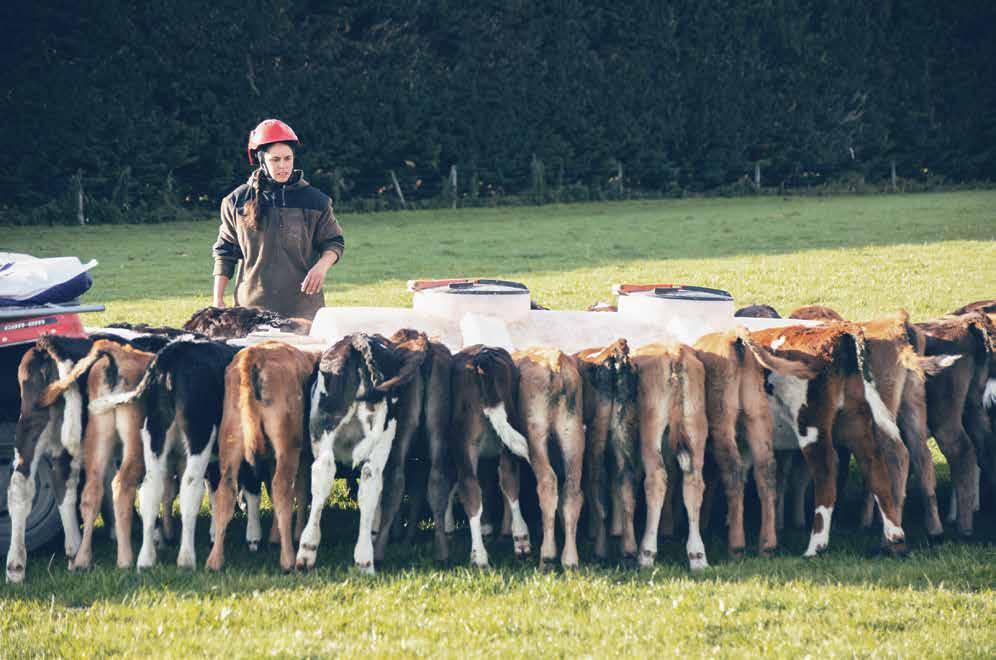
Westpac introduced a ground-breaking initiative aimed at transforming sustainable farming practices in New Zealand in June 2023. This programme marks a significant step towards supporting the country's agricultural community in meeting sustainability and compliance standards.
"The Westpac Sustainable Farm Loan offers farmers a unique opportunity to advance their farm's future," explained Tim Henshaw, Westpac Head of Agribusiness. "It's a demonstration of our commitment to fostering sustainable agriculture and ensuring a prosperous future for New Zealand."
At the heart of this programme lies the concept of a 'wholefarm approach,' a first of its kind in New Zealand. Rather than merely funding individual compliance or green initiatives, the programme supports farmers to adopt a holistic view, viewing the entire farm as a sustainable asset. “This is New Zealand’s first and only whole farm sustainable loan” says Tim, “where the whole farm is viewed as a sustainable asset.”
was also introduced. Farmers and growers commit to meeting these standards, with recognition of existing farm assurance programs to streamline reporting and reduce duplication
The development of this innovative product stemmed from feedback from farmers and agribusiness owners who expressed a need for support in enhancing their farms' resilience and sustainability. Working closely with a pilot group of farmers and AsureQuality, Westpac designed the programme to address these needs effectively. Says Jo Faber, Westpac Senior Agribusiness Manager, “Our farmers are telling us one of the key benefits is that we recognise and complement their existing farm assurance programmes.”
So, what are the benefits of embracing this approach?
The Westpac Sustainable Farm Loan programme empowers farmers with more control and flexibility, accelerates on-farm sustainability, promotes resilience across the entire farm, and offers financial incentives on all term lending.
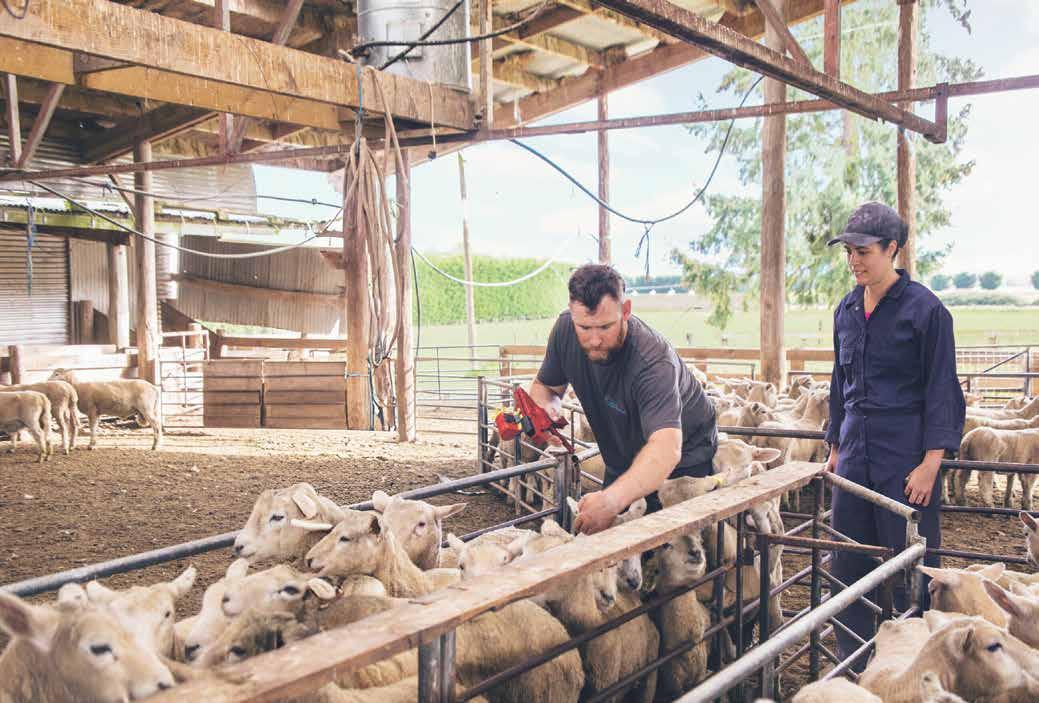
The Westpac Sustainable Farm Standard, a set of criteria developed to guide farmers towards sustainable practices,
Interested parties are encouraged to explore the Westpac whole-of-farm approach by contacting a Westpac Agribusiness manager or visiting westpac/co.nz/farmloan.
STAY LOCAL. That’s the message Canterbury rural trader Ruralco received from its 3000 shareholders.
And chief executive Tony Aitken, who took up the role in November last year, says the co-operative has decided to do just that.
With three retail stores, in Ashburton, Methven and Rakaia, Aitken says the co-op’s new strategy is a switch back to its original intent to make farming life easier for its shareholders.
“Most of our shareholders have been with us since we started 60 years ago,” he told Rural News
“So, we have a very loyal shareholder base, and the feedback they’ve been giving is that we own you and you serve us very well, then why should we be looking at expanding into Taranaki and Southland.”
About two years ago, Ruralco launched a new credit card that could be used at over 3000 merchants around the country. Under the new strategy, Ruralco won’t be seeking credit card customers nationwide.
Aitken says while the new strategy won’t affect staff numbers, the company has reduced its headcount over the past 12 months.
He says the new strategy has the full support of shareholders and merchant partners.
“Our purpose is to keep local farm-
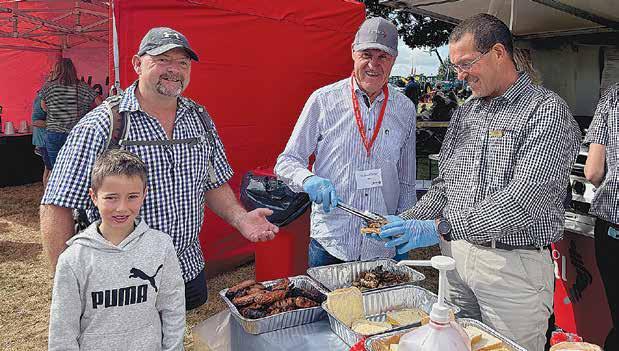
ers thriving for generations to come, by offering real value with the latest innovation in farm supplies, services, and expert advice. Mid Canterbury is at the heart of our homeland, so it is logical we retain our focus locally,” says Aitken.
“We are very fortunate to have such a loyal and parochial support base. Our size and local focus gives us opportunities that many companies do not have – that is to be very connected and responsive to our shareholders. We are small, nimble, and local.”
The co-operative will also support its local farmers, services and suppli-
ers wherever possible.
“We recognise we are all in this together and as your co-operative, we are committed to demonstrating that loyalty. We want to strengthen that connection and to make farming easier for our farmers.”
Over the coming months, Ruralco is rolling out new initiatives which highlight this renewed local focus. These include Ruralco initiated local farmer reference group meetings to identify how best to support farming communities.
There will also be exclusive shareholder and merchant networking
events which inform and encourage collaboration. A “Spend for Your School” monthly promotion has also been launched which allows locals to win $500 for their primary school by using their Ruralco card.
Ruralco chair and former politician Sir David Carter says Ruralco’s new strategy is a change of direction from its previous national growth strategy, which was well intentioned in a very different market environment.
“The decision to consolidate our focus and return to our original vision followed consideration by the board and Ruralco’s executive.”
AN $8/KGMS farm gate milk price is still on the cards with less than six weeks left to run this season.
Last week’s subdued Global Dairy Trade (GDT) event wasn’t a surprise, according to ASB economist Nat Keall.
“We’d been anticipating a relatively flat event, so the result has few
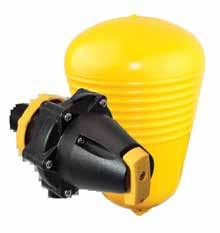
• High Flow
• Compact/Robust
• New Pilot Flow Filter
• Side/Bottom Mount
• Detach to Clean
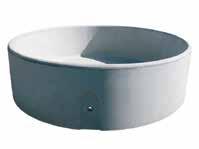
implications for the current season –already in a well-advanced stage – or our early thoughts on the next one,” he says. “In general, dairy prices remain heavily range-bound, with an absence of clear direction evident since prices rebounded from the lows they fell to mid last year.”
Keall notes that little has hap-
pened to radically reshape the global dairy market, and to the extent that dynamics have shifted, different price drivers have moved to offset one another.
“All-up, we still feel comfortable with our $8/kgMS forecast for the current season and our $8.30/kgMS forecast for 2024/25. Risks to next
season’s forecast look reasonably balanced in our view for now.
“With 2024/25 milk price futures currently trading around $8.45/kgMS, up from nearer $8 when we launched our forecast, hedging some output at that kind of price could be prudent, given the balanced skew of risks.”
– Sudesh Kissun• For Water Storage Tanks
• Adjustable levels from 50mm-2.5m
• Minimises pump operation
•Available in 20/25/32/50mm
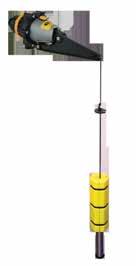
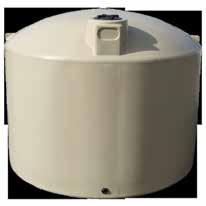

• Stainless steel bracket and Shaft
• Fits plastic and concrete tanks
• Rugged and long lasting

THE CHIEF executive of Rural Women New Zealand (RWNZ) Gabrielle O’Brien says care is needed to avoid digitally excluding those in rural communities.
Her comments come after NZ Post announced that from 29 June 2024, rural households will no longer receive Saturday parcel and newspaper deliveries.
There will be an exception for 17 delivery runs in Canterbury and the Waikato which will be phased out by June 2025 to give business customers more time to put alternative arrangements in place.
The change will also impact rural customers who are PO Box holders and currently receive deliveries through the NZ Post Box Lobby service on Saturdays.
O’Brien says the move
represents a shift to online services with an assumption that face-toface services or physical communications are not needed.
“We want to remind businesses and government that digital doesn’t work for everyone,” O’Brien told Rural News “Care needs to be taken to avoid digitally excluding those who don’t have access to reliable and consistent connectivity and those who may have difficulty or concerns with online connection,” she says.
According to the 2022 Federated Farmers Rural Connectivity Survey, more than half of the farmers surveyed reported internet download speeds at or less than 20 megabytes per second (Mbps).
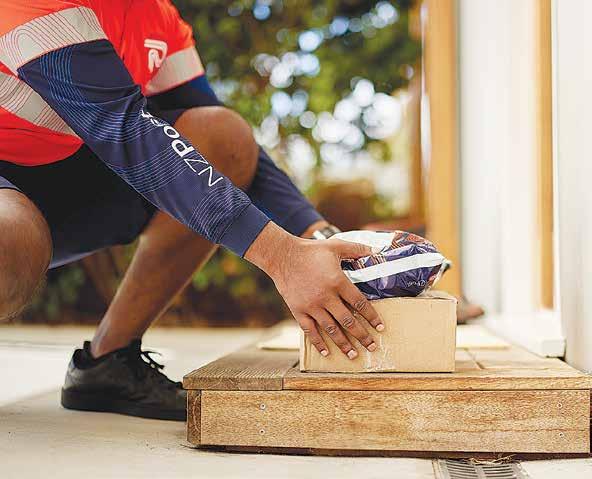
O’Brien says the decision is likely to impact both those reliant on printed information to keep up to date and rural businesses.
“Although we understand that low volumes mean NZ Post considers
the Saturday services are not commercially viable, we do need to look at the bigger picture of services
NEWLY PUBLISHED research shows overseas consumers have a strong interest in improving their wellbeing through eating red meat, highlighting opportunities to achieve a premium for products with proven health benefits.
Crown research institute AgResearch partnered with Meat & Livestock Australia (MLA) and Spain’s Centre for Agro-food Economy and Development to survey attitudes among red meat eaters in Australia and the United States towards physical and mental wellness related to
consumption of red meat.
When asked, more than 90% of participants across the two countries indicated interest in purchasing red meat to improve their wellness status, while about 85% indicated their willingness to pay more for red meat for potential wellness benefits.
“While survey participants from both countries shared a common view on improving physical energy as a key wellness aspect, their specific interests differed,” says AgResearch senior scientist Carolina Realini.
“American respondents showed

to rural communities as part of the ecosystem of Primary Industry – a large contributor to our econ-
greater interest in improving cognitive function and mood through the consumption of red meat, whereas Australians emphasised joint and gut health.”
The United States and Australia both play crucial roles in the domestic and global red meat market, serving as major producers and exporters of red meat and having substantial red meat consumption per capita.
Realini says the nutritional benefit of red meat such as beef and lamb is already well-documented in previous research. The proteins, vitamins and
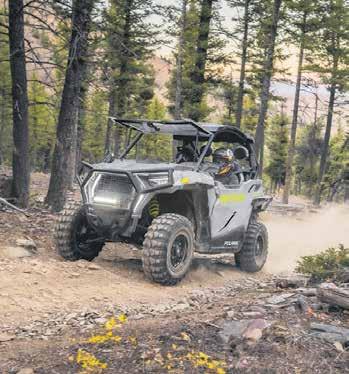
move comes down to the commercial viability of the service.
“Today, the items delivered by NZ Post rural delivery partners on Saturday are limited to subscription newspapers, as well as some parcels,” Main says.
“We deliver very low volumes of items on these days, and it costs us more to deliver on Saturdays than we earn from the products we deliver.
“We acknowledge the effect that ceasing Saturday deliveries may have on Kiwis who live at a rural address,” he says. “This is not a decision that we have made lightly and we empathise with those who could be impacted by this change.
omy,” she says.
However, NZ Post chief operating officer Brendon Main says the
minerals from red meat are known to be vital to good health throughout life, with links to brain function and mood.
While Realini says there is still some way to go to be able to provide compelling and specific evidence of physical and mental wellness benefits from red meat consumption, the survey suggests a promising opportunity for producers to tailor products to align with consumers’ wellness preferences and individual needs.
“We know that red meat producers in New Zealand are currently facing

“These are not always easy decisions to make, and we again acknowledge the impact on rural communities.”
significant challenges and are actively looking for opportunities for better prospects in the future. As researchers the onus is on us to provide trusted, robust scientific evidence that supports the recommended levels of red meat consumption as beneficial for wellness and clearly communicating the benefits of these tailored offerings to consumers. Such evidence is crucial to enable the red meat industry to make health claims about their products with confidence, while policymakers are encouraged to promote healthier food choices.” – Leo Argent

the decision to sign on to the AgriZeroNZ joint venture came out of a wish to be a part of the solution.
Earlier this month, it was announced that the bank – along with ANZ and a2 Milk Company –signed on as shareholders in the public-private joint venture formed to help farmers reduce emissions while maintaining profitability and productivity.
AgriZeroNZ was established last year and focuses on emissions reduction tools that will work on New Zealand’s
pasture-based farms and grass-fed animals
ASB general manager rural banking, Aidan Gent, says the bank is “proud” of the role its farming and growing customers play and recognises how hard they work to become more sustainable.
“We want to be part of the solution that addresses all farmers’ need for accessible and effective tools that will help them futureproof their businesses, while maintaining productivity and profitability,” Gent told Rural News
He says the bank was impressed by AgriZeroNZ’s mission and
HOPES OF NZ sheepmeat prices picking up anytime soon in the country’s key export market of China looks highly unlikely.
In a recent update to farmer suppliers, Alliance Group — the world’s largest processor and exporter of sheepmeat said, “China continues to face significant economic challenges with the medium term outlook remaining weak.
Unfortunately, this means weaker market returns in the short to medium term.
“We are taking steps to mitigate our exposure wherever possible through other markets”.
However, a significant portion of Alliance’s key lamb products still depend on Chinese demand. Alliance says that China remains a ‘key influencer’ of global pricing across all species.
“In the medium to longer term, there are opportunities to diversify our product mix away from

thinks it will inspire innovation within the food and fibre sector, adding that the bank is excited to
China’s wholesale market and into more direct to consumer pathways such as online, retail or food service direct.”
Alliance told suppliers that there were some other possible green shoots of positivity for lamb outside of China. It points out that while the Chinese economy remains under pressure, this is affecting consumer confidence.
“While the market is willing to buy volume, prices (lamb) remain weaker. The North American economy continues to improve, which is increasing demand for lamb in the retail and food service sectors.”
However, it warns that increased production out of Australia could restrict further upside.
“EU demand is steady with reports that Easter consumption was positive. Commodity levels in the UK remain steady with demand moderate. The Middle East continues to provide a volume alternative
be on board and part of change.
“Ultimately, we felt it was the right thing to do
to back farmers across Aotearoa,” he says.
Gent says this investment is just one of several initiatives ASB is working on to “transition to a more sustainable future”.
Meanwhile, AgriZeroNZ director Fraser Whineray says the move strengthens the joint venture’s focus on supporting farmers and securing the sector’s future.
“I’m pleased more of the private sector is joining us to back farmersreinforcing our ambition and demonstrating their commitment to ensuring farmers can reduce emissions and maintain their competitive edge on the world stage,” Whineray says.
“The addition of more banks reflects a growing emphasis on sustain-
able finance and sends a strong message that the finance industry is actively supporting farmers to achieve real progress,” he adds.
Agriculture Minister Todd McClay says the AgriZeroNZ joint venture is accelerating the development, commercialisation and adoption of practical tools and solutions for farmers to meet international climate change obligations.
“I am pleased to welcome The a2 Milk Company, ANZ Bank New Zealand and ASB Bank as new shareholders of AgriZeroNZ,” he says.
He says the investment from the new shareholders shows the increasing commitment of New Zealand businesses to help get emission reduction tools into
the hands of farmers sooner.
“With the backing of both government and private sector companies, New Zealand will be a global leader in developing the tools, technologies, and practices to drive down agricultural emissions while maintaining the productivity and profitability of our food and fibre sector,” he explains.
The two banks and milk processor join ANZCO, Fonterra, Rabobank, Ravensdown, Silver Fern Farms and Synlait as shareholders, with the government retaining its 50% stake in the venture via the Ministry for Primary Industries (MPI). The move takes AgriZeroNZ’s total funds to $183 million over its first four years.
for commodity products, although there is some pressure as inventory builds over the slow Ramadan period.”
On the mutton front, Alliance says world supply and demand is in balance on the back of reducing supply from New Zealand.
“However, increased supply out of Australia is keeping pricing in check,” the company adds.
“We are continuing to diversify away from China into wider Asia, namely Taiwan, Malaysia and Singapore to mitigate the impact of the weaker Chinese market. The EU/UK and North America remain a viable option for certain cuts.”
Meanwhile, it appears the price malaise in China is not restricted to sheepmeat.
Alliance has told suppliers that beef prices in China remains soft, with pricing across most items “under pressure”.
– David Anderson

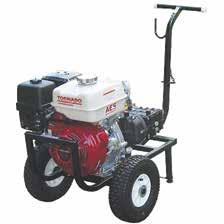


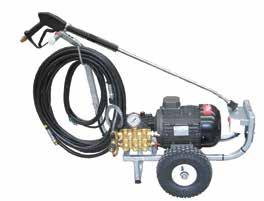
A NEW report has revealed the full impact of Cyclone Gabrielle on Hawke’s Bay’s principals and teachers.
The report, titled “We
Are Still Here”, comes from research done by teachers’ union NZEI Te Riu Roa six months after the storm made landfall in February last year. It states that in the aftermath of the cyclone, teachers and principals
in the region feel overworked, unsupported, and underprepared to navigate the longtail issues of the storm.
Mark Potter, president of NZEI Te Riu Roa, says school staff were the “quiet heroes” of the cyclone response, with many going above and beyond to provide students with a sense of normality.
“Across the region, they [schools] acted as places of emergency shelter, civil defence hubs and resource distribution centres,” Potter told Rural News “School principals
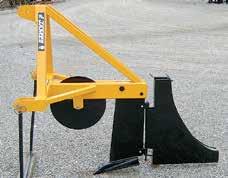
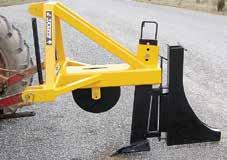

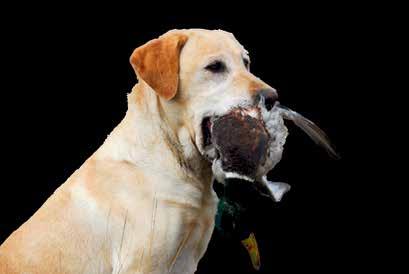

acted as community coordinators, connecting different agencies and people toward response efforts and supporting whānau to access the supplies they needed to get back on their feet.”
The report makes six recommendations to improve both disaster responses and support for schools.
The first recommendations are that both schools and Early Childhood Education (ECE) centres are recognised for the role they play in disaster response scenarios, as well as taking steps to ensure they are pre-
pared for a disaster.
“The other thing that is really important to note is that the ‘tail’ of a disaster is very long; it’s going to take years for the region to fully recover, especially when it comes to the mental health and wellbeing impacts,” Potter says.
The report notes there is an increase in the workloads of principals and teachers, something Potter says has manifested in both the material impacts of the cyclone – e.g. damage to school buildings – and an increase in mental health and wellbeing needs of
children in schools.
He says the best way to support schools and manage that issue would be to increase staffing levels.
“The Ministry [of Education] actually did this last year, but the extra staffing was only granted until the end of 2023,” Potter says.
“What we are hearing now is that these mental health and wellbeing challenges have not gone away and in fact are getting worse, so we recommend that the extra staffing be reinstated for a further 12 months minimum.”
Beyond that, Potter says ongoing mental health and wellbeing support for both students and school staff is a requirement.
“It was great that the government extended the Mana Ake programme to Hawke’s Bay and Tairāwhiti,” he says.
“We need to make sure not only that all schools who need it have access to the programme, but that there is the workforce there to do it, that means for example that there are enough councilors around to meet the demand.”
KIWI RUGBY star Renee Holmes is set for a fruitful year.
Renee, who made her Black Ferns debut against England in Exeter in 2021 and was a member of the Black Ferns victorious Rugby World Cup 2021 squad, is the first ever brand ambassador for Gisborne based produce company, First Fresh.
The two-year deal will commence from early April, just as the 2024 fruit supply season gets underway. It’s the first ambassadorship agreement for the company as it looks to take its First brand closer to the consumer.
“To have Renee who is a born and bred Gisborne girl on our team to help us tell our story is fantastic,” says First Fresh sales & marketing director Grant Walsh.
“We partnered with Renee last year for a persimmon campaign on social media and this proved to be very successful. We
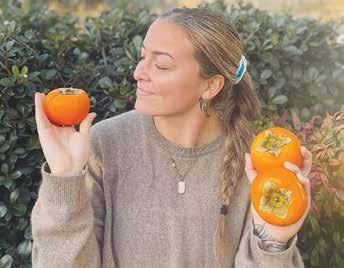
share common values and the plan now is to take this cooperation even further which is very exciting,” he says.
The partnership will see Renee represent the brand across a selected group of citrus products throughout the year and continue with persimmons during their season to further
increase awareness of First brand fruit.
Our key goals are to highlight when fruit is available, how best to eat and prepare them, and generally showcase the benefits of Gisborne grown citrus to a wide audience.
The campaign will be largely based around social media and
will help to create awareness as well as consumption and really highlight the fact that Gisborne is the premier growing region for citrus and persimmons and that First brand products look and taste great. Competitions and giveaways will feature throughout the campaign.
“I am really excited to team up with First Fresh,” says Renee. “To have that connection to my hometown and to help make people aware of the benefits of eating healthy. I grew up eating citrus and persimmons from Gisborne and still do – it helps me achieve what I need to achieve every day.”
It’s going a busy year for Renee with rugby duties for both the domestic rugby competition and then later with the International Test Match series in May and June and then an end of year tour to the Northern Hemisphere.
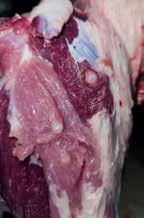
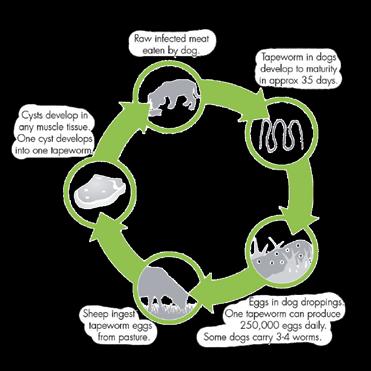
ONE OF the country’s leading experts on China has praised the NZ Government for its handling of the recent incident with China over that country’s cyber attack on two of our parliamentary institutions in 2021.
It comes as NZ walks something of a tightrope in terms of international politics, trying keep friends with traditional allies, but at the same time facing up to the fact that for the foreseeable future China will remain a major market for NZ’s primary exports.
When news of the cyber attack broke, Foreign Minister Winston
Peters described it as ‘unacceptable’, while Prime Minister Christopher Luxon noted it was the first time NZ had publicly called out China in this way. But unlike the UK and the US, NZ has decided not to impose any sanctions on China – a move which Jacobi believes is correct.
“Top marks for our people in this regard,” says Stephen Jacobi.
He believes the NZ Government made a very careful and measured response to the Chinese, which states the need for us to uphold our values and protect our democratic institutions.
He adds that the Chinese won’t like this and staff at the Chinese
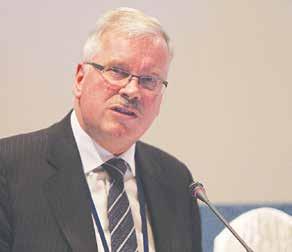
embassy in Wellington have denied their country’s involvement in any cyber attack.
“In all of this, is there is a risk to our trade?” asks Jacobi.
“Well, when bilateral relations are affected like this, of course there
is some level of risk. But there is also a lot that is going very well in the relationship with China, so I hope the Chinese will take a measured view of this in respect of NZ.”
He says there has been a long standing relationship with China going
WHILE THE Chinese market is taking time to emerge from the Covid lockdowns and subsequent internal economic problems, Jacobi believes there is still good demand for the high quality food products that NZ exports there.
He says there is still a lot of optimism in China and he expects that country to come back to growth mode.
“Remember who is buying our products in China –the middle class – and that market is continuing to grow and still has a lot of purchasing power,” he told Rural News. “They are looking for the sort of products that we produce and from a country that treats China respectfully – notwithstanding the present situation.”
Jacobi says NZ needs to look for further export options but says he’s not sure we can replace China any time soon in our export mix.
back to the 1930s with, for instance, NZ-born writer and activist Rewi Alley who lived in China for most of his adult life.
In recent times, there has been the signing of an FTA between the two countries and ongoing high level political visits aimed at strengthening the economic relation-
ship. Jacobi believes the Chinese will not be completely surprised by NZ’s reaction to the cyber attack – given they know that we are a democratic nation with close ties to our allies and cherish our democratic institutions. He says the Chinese will also be aware that NZ has a long history of operating an independent foreign policy.
“Not just signing on to someone else’s press statement but working out what our values and interests are and making an appropriate response.”
Jacobi wouldn’t be surprised if there were talks behind the scenes before the formal statement was made by the NZ Government.
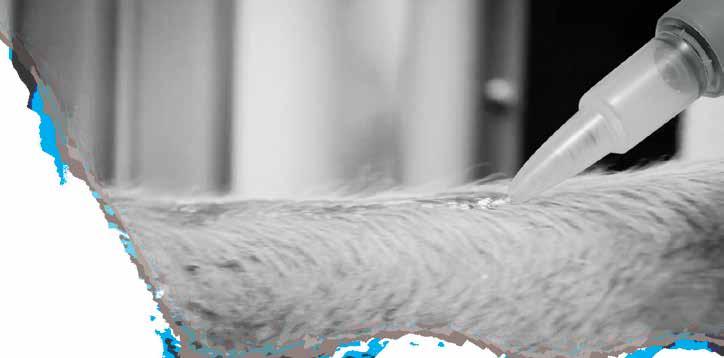
choose
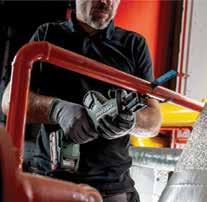

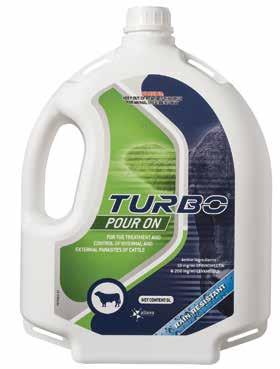
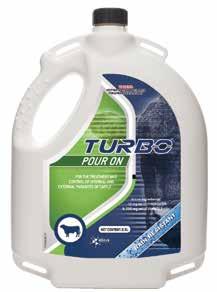
ONE OF the country’s top Māori sheep and beef farms is facing a fiveyear battle to get back to where it was before Cyclone Gabrielle struck just over 14 months ago.
Wi Pere Farms, located just northwest of Gisborne, won the prestigious Ahuwhenua Trophy for the top Māori sheep and beef farm in October 2022.
The steep, hard hill country property consists of 4900 effective hectares, divided into two blocks, and carries 51,000 stock units comprising 32,400 sheep and 4600 cattle.
The farm is managed on behalf of the trust by Tim Rhodes, with fifteen full-time staff. The farm won praise from the judges of the Ahuwhenua competition who singled out its governance, farm management and the overall performance of the property. Those who attended the field day at Wi Pere were likewise impressed with they saw. Then came Cyclone Gabrielle and a whole set of other rain events
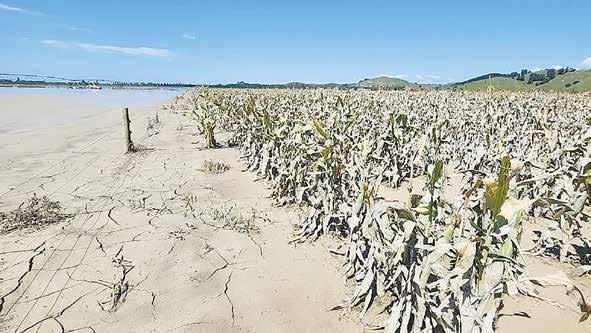
which undid all the years of good work on the property. The rain brought down silt and slash and destroyed fences, farm tracks, irrigation equipment and other infrastructure leaving Rhodes and his staff with massive challenges. It’s now over a year since the cyclone struck and Rhodes reflects on what they have been able to do.
“We have fixed most of the land that was covered in silt,” he told Rural News
“We had anywhere from a metre and a half

to 200 millimetres of that on our flats and that’s all been re-grassed. With the deep silt, we just
direct drilled into pasture and used fertiliser to get it going, and the shallow stuff we flipped and
mixed with the old topsoil,” he says.
Rhodes says their irrigation equipment was damaged to some degree and that has now been fixed. But he says the more difficult and longterm issue is fixing the internal fences and having insecure internal paddocks is massively affecting their farming operation.
“We can’t control stock properly and last winter we ran out of feed because we couldn’t rotational graze and stock went everywhere. We couldn’t finish as many











Cyclone Gabrielle has severely impacted the profitability of Wi Pere. They have had to buy in extra feed and have been unable to finish as many cattle and to the weights that they normally do.
bulls as we normally do because we didn’t have any power and we couldn’t subdivide our paddocks. This year it will be better, but it will still be a bit of a struggle until we get our fences up again.”
Rhodes believes it will take up to five years before the farms are looking as pristine as they were at the time of the Ahuwhenua competition. He says the repair work is very expensive and they couldn’t afford to do this now, even if there was the labour to do the work. But he says labour is still a problem – especially getting the people with the right skills to do the work.
Rhodes says Cyclone Gabrielle has severely impacted the profitability of Wi Pere. They have had to buy in extra feed

and have been unable to finish as many cattle and to the weights that they normally do.
He says in the light of the cyclone, Wi Pere is reviewing its farming operation: probably not changing the mix of stock, but looking at land currently being farmed and seeing whether some land might be utilised differently. He says they are also looking at some fences that have been damaged regularly over the past few years and says they will pull those out altogether because they can’t afford to keep fixing them.
Rhodes admits Wi Pere, like other farms, is struggling and says all they can do is repair what they can and build resilience to deal with future events like Cyclone Gabrielle.





farmers.
A SMALL company which mobilised veterinarians around the country to deal with Mycoplasma bovis was one of the winners in this year’s Biosecurity Awards, held at Parliament.
The awards are designed to recognise inspiring and diverse biosecurity champions who are making significant contributions to biosecurity in New Zealand. These include schools, community groups, companies, science institutes and local authorities. More than 200 people attended the function hosted by the Minister for Biosecurity Andrew Hoggard.
As the M. bovis crisis escalated and task of testing on farm was beyond the resource capability of Ministry for Primary Industries (MPI), VeritAg, which specialises in verification work in the ag sector, was called upon to help. It took on the task of mobilising and deploying 220 veterinary practices throughout the country to help with testing cattle on farms. At the same time VeritAg, which also has links to SVS labs, managed to speed up the testing of samples from
Richard Campbell, a director of VeritAg, says at the time, farmers were facing big backlogs and were under stress waiting for tests to be taken and samples analysed.
“For example, we had a situation where a dairy farmer who was in the middle of calving was told he may have to wait for up to six weeks for answers.
“But by using local vets we were able to really speed up the testing programme,” he says.
Fellow director, Cynthia Northcote, says the vets knew the farmers well and besides speeding up the testing they were also able to provide some pastoral care during a difficult time.
At the awards, Hoggard once again made an undertaking that ‘frontline’ biosecurity services within MPI will not be cut under the Government’s plan to reduce the number of staff in the public service.
“I have been looking at the MPI budget and all the frontline activities are staying the same. It’s around some of the backroom functions that MPI were looking to trim a bit, and seeing if things can be done smarter and faster and get better bang
THE DIRECTOR General of MPI Ray Smith says it’s important for his department to celebrate the success of a whole range of groups and people around the country. He says biosecurity is more than just what happens on the farm – it’s what’s happened in waterways, at the border and in the community.
“What we want is to get a whole range of people who get involved in biosecurity, including kids in schools, and get lots of them looking for things like pests and diseases. In the case of children, they often come home with ideas and educate their parents,” he says.
Smith says the goal is to get all Kiwis mobilised into supporting biosecurity.
Among the fifteen finalists were schools, iwi and local conservation groups, but also local councils, including the Waikato Regional Council and science institutions such as the Cawthorn Institute.
One of the major awards, the Minister’s own Biosecurity Award, went to long-serving Scion scientist Dr Brian Richardson in recognition of his outstanding contributions to NZ biosecurity over many years. Richardson has been involved in several eradication programmes including wilding pines and invasive insects like the painted apple moth, white-spotted tussock moth, and southern saltmarsh mosquito.
for our bucks. But again, frontline services will be untouched,” he says.
Hoggard says biosecurity has always been rated by governments and farmers as one of the most important contributors to the preservation of NZ’s primary sector.
He says it’s vital for the country’s prosperity and protects our $57.4 billion food and fibre sector as well as our unique flora and fauna.
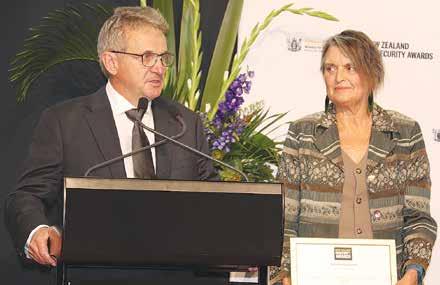


KETS have softened through March 2024 against a backdrop of slightly weaker global fundamentals. The dairy complex had staged a recent rally since the bottom of the market in Q3
2023. Nonetheless, all dairy products except butter were softer in March 2024 and remain at or below five-year averages.
Rabobank expects dairy commodity prices to remain range-bound at or near current levels in the near term.
Sluggish demand remains a key driver for dairy commodity prices. Better times lie ahead for dairy demand in many economies. However, the speed of recovery will be critical to how new season’s milk prices will shape up. Dairy demand
is generally still sluggish and if this remains the case for longer than expected, global markets will be susceptible to softness in commodity prices – despite a weak global supply backdrop.
Local milk production in Oceania remains in positive territory. New Zealand milk production was 2.8% higher in February (leap year adjusted) on a milksolids basis.
While Australian milk production grew by 5% in February (leap year adjusted), bringing season-to-date milk production to 5.95bn litres. This represents a lift of 2.5% on the same period last year (or 180m litres).
Global milk supply remains constrained outside of Oceania. US milk production was 1.3% lower in February (leap year adjusted) marking the eighth consecu-
tive weaker year-on-year decline. EU milk production was down slightly in volume for January 2024 compared to the prior period. All eyes are on the Northern Hemisphere seasonal peak in the months ahead.
Softer local feed markets is welcomed news for Kiwi dairy farmers. Ample local supply here, as well as in Australia, are helping to keep feed prices lower compared to last year.
FARMGATE BEEF prices continue to track well as we move into quarter 2 of 2024. Demand from the US continues to drive some of the positive pricing for New Zealand farmers and this trend is likely to continue through this year. The bull price has held steady over the past few weeks around
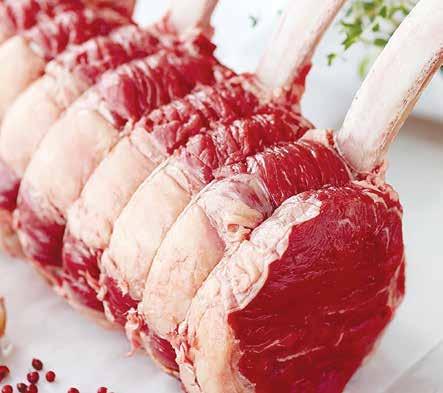
NZD 590c/kg cwt, which is 10% above the fiveyear average for the same week last year.
Some reasonable pockets of late summer
dry have showed up through March. Notably in parts of the South Island and lower eastern North Island, which has meant more movement
of stocks toward sale yards and cull dairy heading off farm – a bit later than in a “normal” year.
Slaughter shortages have somewhat eased
because of this and short weeks like Easter help balancing things out. New Zealand Meat Board numbers suggest that this slaughter season (since 1 October 2023) is now largely in line with last year’s total beef kill nationally. Cull cow numbers are still down around 3% and bull numbers are down 4% YOY for the season, both of which may catch up in coming weeks.
The US domestic 90CL trimmings price has skyrocketed to hit a record weekly average in March of USD 336c/ lb. This increase seems to be somewhat driven by retail demand and the low domestic throughput. Meanwhile, New Zealand’s exports to the US have seen a 33% YOY growth. Although China is still willing to accept volume, the value of

exports to China is down by 13% YOY. With the US beef herd at low levels and US beef imports and domestic kill struggling to keep up with demand, we anticipate that the trend of New Zealand beef being used for filling burgers in the US will persist throughout 2024.
Prime beef pricing is currently sitting very similar to bull and there are anecdotal rumours suggesting increased demand for grass-fed beef in the US over the coming months. Overall, beef exports from New Zealand have shown positive growth, with a 7% increase in value and an
8% increase in volume year-on-year up to the end of February 2024.
Exports have once again shown the tip toward the US. Overall, New Zealand beef markets remain optimistic for 2024, and it seems likely to be the golden goose in the red meat sector for 2024.
Sheepmeat MARKETS HAVE remained reasonably steady for lamb pricing through March, albeit at a lower level than anyone would like with the SI lamb price at NZD 590c/ kg cwt. Autumnal change will see numbers heading
off farm, with processors seemingly able to keep up at this stage.
Comparing DecemberFebruary total exports year-on- year, we see positive signs for markets outside of China.
Volumes of sheepmeat exports increased by 2% to the UK (to 9% of total) and by 1% to the US (to 8% of total), with the EU27 holding steady at 15%.
Comparing DecemberFebruary totals year-onyear, 52% of sheep meat went to China versus 59% last year, and value dropped from 40% to 32%.
Total sheepmeat value/kg FOB to China
has decreased from NZD 645 to NZD 513, indicating continued soft demand.
IN THE last weeks of March global trade discussions revolved around expectations regarding Chinese exports of nitrogen and phosphorus fertilisers. While the export of nitrogen remains uncertain, there is clarity regarding phosphorus fertiliser exports. The overall outlook appears favourable for end users.
Additionally, India’s urea tender has established a bearish foundation for the coming
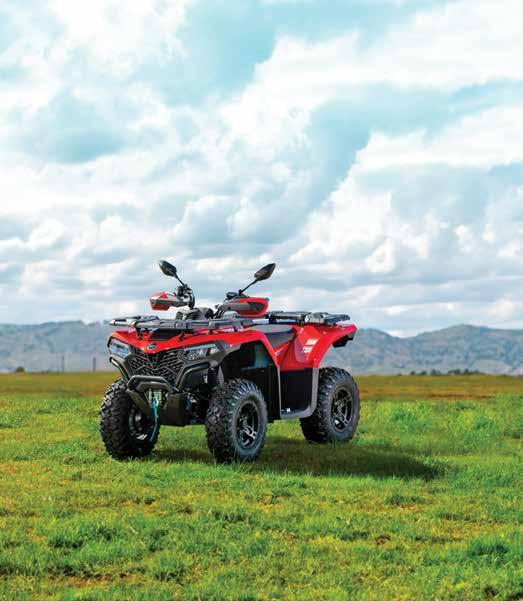
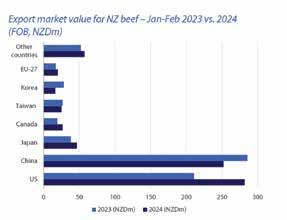
months.
The Chinese export quotas of phosphorus fertilisers have now been set at a maximum of 7m tonnes, 5m for DAP, and 2m for MAP. The decision mirrors the 2023 figures and signifies a 27% recovery versus 2022 export volumes, which were the lowest exports in the past five years. Since early November 2023, exports have been suspended to exert downward pressure on local fertiliser prices. As a result, DAP sourced from Morocco has been steady, hovering around USD 600/tonne FOB level. The outlook for the next five months suggests
a potential drop of up to 15%.
Unfortunately, this timing may be too late for winter crops and pasture. However, there remains hope that the adjustment will align with spring and summer demand.
Currently Chinese nitrogen fertiliser manufacturing is operating at a significantly higher pace compared to the same period last year, approaching 200,000 tonnes per day.
However, there is a critical factor at play: the lack of clarity regarding government-defined quotas. Some official
guidance is expected by mid-May.
Without this clarity, the only foreseeable outcome is the accumulation of surplus stocks, exerting a bearish pressure on the market, potentially impacting the next two to four months.
In late March India’s urea tender revealed a market with ample stocks and an anticipation of lower prices. By early March, the initial expectation hovered around $AU560/tonne, including cost and freight. However, the lowest offer was AU$515, which is 8% lower than expected.

THE DISTRESS that the politicians and bureaucrats are causing to the people of Wairoa and the wider Tairāwhiti is unforgivable.
Wairoa Mayor Craig Little has every reason to be angry at the seeming lack of priority, commitment and energy that the Government and its agencies are putting into sorting out this mess: That is, State Highway 2 south of Wairoa. As one who drove the road last year and again just a few weeks ago, it is hard to see much progress, apart from more traffic cones. No doubt a permanent fix to SH2 is a challenge, but the perception is that the problems of the East Coast are not a high priority to those capable of doing something about the problem.
Soon after Cyclone Gabrielle hit, politicians were falling over each other coming to the East Coast for photo opportunities and giving ritual sympathy speeches and promises. Likewise, the media cashed in on the disaster. But the reality is the problems in Tairāwhiti go beyond a perfunctory visit and sound bite on TV or radio. Fourteen months on, people in Wairoa township and in the hills behind the town are still suffering. Many are still living in temporary houses, farmland is still slipping, making it impossible to permanently replace fences. Many farmers have limited access to their farms, all at a time when the primary sector is amid a crisis. The cost to the people of Wairoa and its hinterland, both in social and economic terms, in what amounts to partial isolation, is taking its toll on the mental health of people.
The fact is that the economy of the whole East Coast is in dire straits because of poor infrastructure, and that is the fault of successive governments. But as one famous Wellington retailer used to say, “It’s the putting right that counts”. So what’s the problem and why not now? Or how many more tonnes of paper for reports will be required by the bureaucrats and politicians to get beyond snail’s pace? – Peter Burke
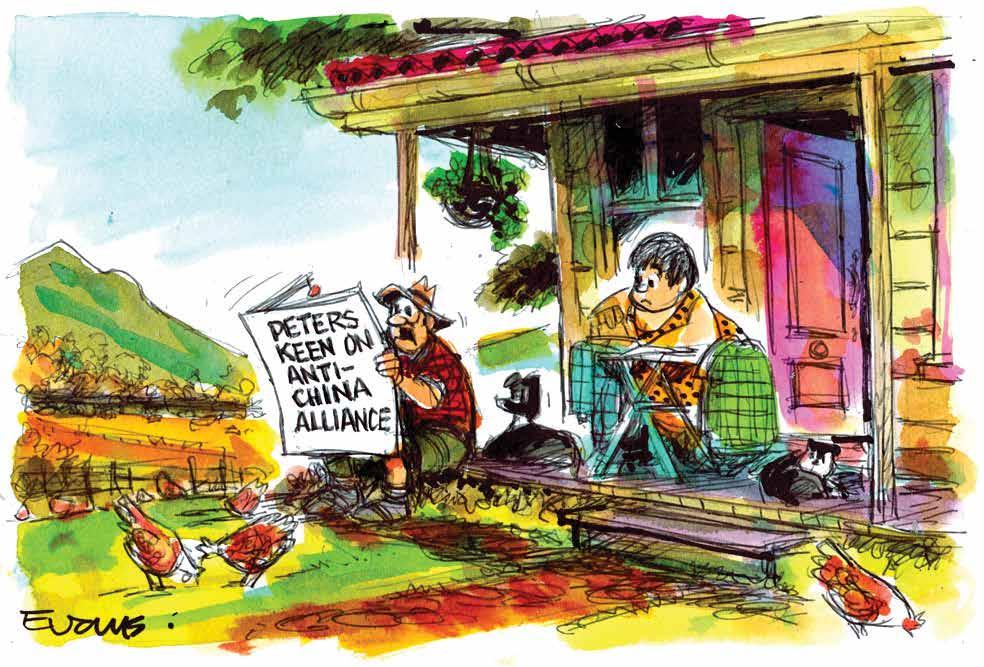
“Here we are, up the creek without a paddle, and he wants to kill the goose that lays the bird in the hand!”
YOUR OLD mate notes that research on the make-up of the new parliament shows it is now far more farmer-friendly and populated with greater rurally aware MPs.
According to Wellington-based PR firm BlacklandPR, “the most notable change in this parliament is the fall in the number of MPs with working backgrounds in the education sector and the increase in the number of MPs with agricultural backgrounds”. Unsurprisingly, the PR firm explained that this was down to huge drop in the number of Labour MPs and the big increase in National MPs – voted out and in – at the last election. Of course, this news has upset the chattering classes in the Wellington bubble who believe only their world view counts in politics and having more farmers in parliament is a bad thing. However, not according to this old mutt who reckons the change is fantastic!

THIS OLD mutt understands that NZ Post will soon no longer be delivering to rural addresses on Saturdays. From the end of June, there will be no newspaper and parcel deliveries to RD addresses on Saturdays, with the exception of 17 rural delivery runs that will be phased out by June 2025.
According to NZ Post “Saturday services to rural areas are not commercially viable. We deliver very low volumes of items on these days, and it costs us more to deliver on Saturdays than we earn from the products we deliver”. So, this means, from the end of June, there will be no Saturday newspapers delivered to any rural addresses around the country. A sad sign of the times and a big worry for those newspaper companies who put out a big Saturday editions. Thankfully, Rural News is delivered on a Monday, so no worries for our loyal readers keeping up with all the relevant news.
YOUR CANINE crusader is not surprised by the recent news that New Zealand plant-based ‘fake meat’ business is in the process of shutting down. Sunfed’s founder and chief executive Sukul Lee conceded that the “plant-based bubble” had burst and investors were no longer keen to support the company. The business started in 2015 and aimed to provide ‘nonmeat alternatives’. However, Lee admitted it had not been able to move to a position where it had a positive cashflow. Venture Capital investors started to pull back and existing venture capital investors were no longer interested in supporting the business. Lee also conceded that investors had jumped into a “plant-based gold rush” thinking they would see valuations increase quickly. She said the “plant-based bubble” had now burst and the category was “undergoing a reality check”. Who would have picked this happening?
The new government has clearly signalled big cuts across the public service. Given the 34% blowout in the size of the Wellington bureaucracy in recent years, The Hound is all for it. Between 2017 and 2023, ten departments increased staff numbers by more than 64%. As for growth in absolute numbers, MBIE led the way at 2917 new staff. MPI added 1300, so will no doubt be looked at. All the same, despite the need for savings, it was pleasing to hear Biosecurity Minister Andrew Hoggard say frontline biosecurity services at MPI will not be cut. This is vital to defending our biggest export earner. Cuts to MPI, if any, will need to be chosen very carefully.


South Waikato farmer Helen Mandeno recently delivered a speech at Beef + Lamb NZ annual meeting in Nelson. She spoke in support of her remit on B+LNZ seeking majority consensus from levy payers before advancing policies that may threaten NZ’s pure, grass-fed and non-GE status. Here’s part of what she said:
I BELIEVE strongly that the potential risks to human and animal health and the risk to our industry reputation of altering the rumen of our ruminants through methane vaccines, methane boluses, feed additives and GM grasses is of such huge consequence that all NZ farmers should get a say in this decision.
NZ farmers will be asked to spend time and money on products that will deliver no tangible benefit to their farming systems whatsoever, except perhaps giving them a ‘license to farm’ in the sense of ‘being seen to be reducing ruminant emissions’. Reductions in global temperatures due to these measures will be
IT WAS disappointing to read the item in The Hound questioning Beef + Lamb New Zealand’s support for Shepherdess (Rural News, Why, 9th April 2024). B+LNZ advertises with Shepherdess to highlight positive stories and initiatives in the sheep and beef sector.
Farmers have told us they want positive stories out there to celebrate the people and achievements that make our sector worldleading, and this cost-effective partnership helps us to achieve this.

Shepherdess has a wide readership of (mainly) women across New Zealand who are involved in, or simply interested in, the agricultural sector. Kristy and her team have done an amazing job of shining a light on inspirational rural women and communities and telling their stories, in both the magazine and the related TV show.
In addition to Shepherdess, we advertise in a range of other publications including Rural News to ensure we can reach a wide and diverse audience.
The Hound could also note our total spend with Shepherdess over the last three years is similar to what we have spent with the Rural News Group over the same period.
Kate Acland, Chair, Beef + Lamb New ZealandAll good stuff. The Hound made no mention of advertising. The Shepherdess describes B+LNZ as a “sponsor” and B+LNZ, on their website, says it is a “sponsor” and “founding supporter” of the magazine. The article questioned the value of that sponsorship for levypayers in straitened times. Judging by the strong response, the answer is overwhelmingly ‘yes’. - Ed.
impossible to measure because they are totally insignificant.
What I find really concerning is that Beef + Lamb and Federated Farmers were very quick to embrace discussions around GMO grasses, methane vaccines, feed additives, methane boluses and any other
‘biotech tool’ that alters the rumen of the gut without seeking clearance from farmers. The subject of genetic modification and/or gene editing can be an emotive and polarising topic. Many times people have an opinion that is based on very little scientific understanding or they may resort
to ‘group think’ without knowing what they are truly supporting.
Regarding methane vaccines: while vaccination for unwanted diseases is a common practice, an additional vaccination that has no benefits to the animal and that targets a naturally occurring rumen
organism could well face consumer, regulatory and animal welfare hurdles.
I urge great caution on this journey of fasttracked novel biotechnology tools.
There is huge risk for very little gain. Advancing biotechnology in the name of climate change is only ever going to serve
those with commercial interests in the biotech companies. Trying to trim millionths or even thousands of a degree warming, which is a temperature difference virtually impossible to measure, is both illogical and unjustifiable. The benefits are an expensive illusion.
There’s never been a better time to jump the fence. When you get into a new relationship with us, we’ll guarantee the future resale value of our tractors.

Tempted? Get in touch with your local Power Farming dealer today.
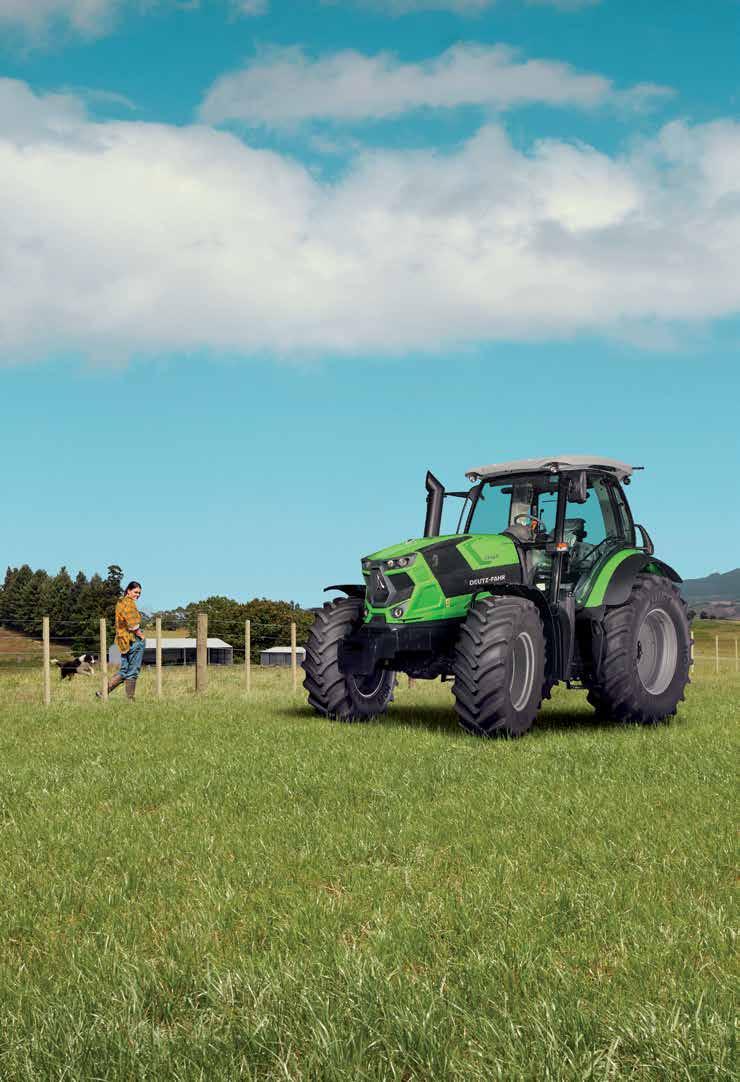
have been named the Regional Supreme Winners at the Otago Ballance Farm Environment Awards in Dunedin.
Angus and Tara have been managing The Wandle since 2020 and are focused on producing quality over quantity while caring for the land. The Wandle is one of seven farms owned or leased by Lone Star Farms. This sheep and cattle, breeding and finishing operation uses
property features 700ha of irrigated land, along with 500ha of tussock country on the iconic Rock and Pillar Range conservation area.
They run 4000 ewes and 270 Angus cows, producing both premium and commodity beef and lamb, along with wool products. They are continually tweaking their farming system to balance production, premium stock, financial profit, and their environmental footprint.
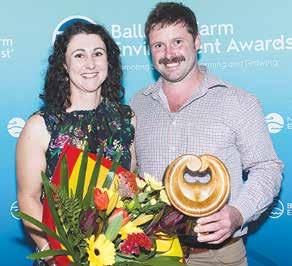
Farming practices are guided by different They’re actively working to earn carbon credits and reduce methane
siders river flats, fragile soils and water risks with an eye to protecting them
ment decisions, ensuring the stock are happy and healthy. The judges commended the excellent farm infrastructure, including a quality stock water reticulation system that features at least one trough in each paddock and innovative culvert installations to keep stock and vehicles out of waterways.
Angus and Tara are also striving to improve the protection of the
property’s native habitats, with the judges observing that having 80% of waterways already fenced and a large riparian planting programme along the riparian setbacks is an amazing legacy of this property.
In awarding the Regional Supreme Award, the judges noted that Angus and Tara are hard workers, innovative and make a formidable farm management team.
“What they have achieved with their farm team in a short period is worthy of celebration,” they said. “They also show exceptional people management, encouraging their team to be part of the business and the wider community, and have a combined desire to improve the farm’s performance and enhance biodiversity, treating the farm as if it was their own.”

An animal welfare lens
TWO MAJOR red meat sector projects are getting up to a combined $1.7 million in funding from the New Zealand Meat Board (NZMB).
The decision follows consultation with sheep and beef farmers on the distribution of interest and dividends generated from the NZMB’s $79 million reserves fund towards industry good projects. Up to $700,000 will go to the Informing New Zealand Beef genetics project (INZB) and up to $1 million to the Eliminating Facial Eczema Impacts (EFEI) programme.
Kate Acland, chair of the NZMB and Beef + Lamb NZ, says the two projects will deliver significant benefits to red meat producers.
“This funding boost from the NZMB will help both INZB and EFEI drive major productivity gains behind the farm-gate for thousands of sheep, beef and dairy farmers across the country. This investment comes at a critical time for the sector, which is facing significant financial pressures.
“INZB is providing farmers with the
beef genetics tools to help drive productivity and profitability on farm. It is on track to achieve its goals of boosting the sector’s profits by $460m over the next 25 years.
“The EFEI programme aims to equip farmers with tools, knowledge and solutions that can be adopted to combat a devastating livestock disease, and improve productivity in the red meat and dairy sectors.”
The NZMB does not identify or administer any research programmes, however, it considers funding projects put forward by B+LNZ, says Acland.
“The NZMB has three key roles. One is to achieve the best possible ongoing returns from sheepmeat and beef exports to international quota markets. It currently oversees $2.6 billion of red meat exports to the quota markets of the European Union, United Kingdom and the United States, representing tariff savings of $934 million a year for the sector. It also administers farmer reserves, currently standing at $79 million,” says Ackland.

The Ministry for Primary Industries (MPI) is closely following developments in the spread of high pathogenicity avian influenza (HPAI) overseas, including the detection of the H5N1 strain in cattle in the United States.
“New Zealand has never had a case of high pathogenicity avian influenza (HPAI) and we have systems in place to prevent HPAI entering New Zealand on the pathways that can be managed, and to ensure early detection if it does arrive. This detection of HPAI in cattle in the US does not change that,” says MPI’s Chief Veterinary Officer Dr Mary van Andel.
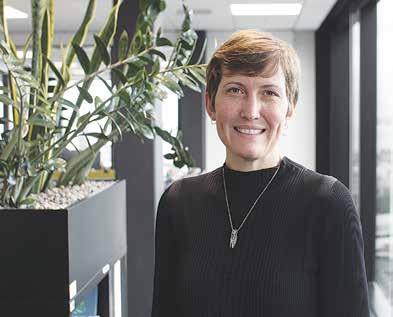
“Information from the American Veterinary Medical Association (AVMA) is that most cattle recover in two to three weeks with supportive care, and there have been no confirmed deaths as-
sociated with HPAI in dairy cattle.
“The USDA isn’t issuing
quarantine or movement restriction orders yet, but recommends minimising cattle movements as much as possible, and to not move sick or HPAI exposed animals,” says Dr van Andel.
“We will continue to work with international colleagues to learn everything we can from their experiences. We are keeping a close eye on both the United States Department of Agriculture (USDA) and the Centres for Disease Control and Prevention (CDC) for any new developments with this disease and areas that it has spread to, as well as regular contact with the US Chief Veterinary Officer.”
There are no food safety implications to New Zealand from the current reported outbreak in US dairy herds. Pasteurised milk
New Zealand’s biosecurity champions have been recognised for their work protecting the country from damaging pests and diseases, with efforts to help eradicate Mycoplasma bovis among the award winners.
The Biosecurity New Zealand Awards, held earlier this month in Wellington, acknowledge the hard work of people protecting our vital $57.4 billion primary sector.
The supreme award went to two Northlanders, Arana Rewha and Viki Heta (Ngā Hāpu o Te Rāwhiti and Ngāti Kuta rāua Ko Patukeha), for their work with the local community in fighting the spread of the exotic Caulerpa seaweed. The pair have also championed other biosecurity efforts in Northland.
The GIA Industry Award went to VeritAg, for bringing the private
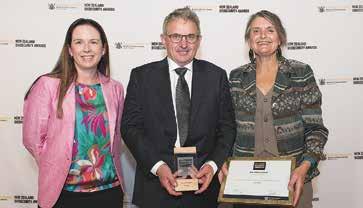
sector into the M. bovis Eradication Programme.
VeritAg and its collaborating partner SVS Labs facilitated the deployment of 220 veterinary practices to support Biosecurity New Zealand’s M. bovis Programme – significantly boosting testing capacity and helping to lessen the
Supreme Award & Te Uru Kahika Māori Award
Viki Heta and Arana Rewha, Ngā Hāpu o Te Rāwhiti, Ngāti Kuta rāua Ko Patukeha - R.E.P.
NZ
For their work to protect their rohe in the Bay of Islands. They have led the community response to the discovery of the seaweed caulerpa, worked towards the eradication of Sika deer in their area, and helped reintroduce native birds in offshore islands.
BioHeritage Challenge Community Award
Ōkārito GorseBusters Charitable Trust
The community-led trust is protecting the habitat of Ōkārito Lagoon, our largest unmodified coastal wetland and a UNESCO World Heritage site, to preserve and restore bird nesting and whitebait spawning under threat from gorse invasion.
Eagle Technology Local/Central Government Award
Waikato Regional Council – Kauri Protection Programme team
For its work in advocating for the ecologically unique southern kauri, and using science, research, and education to inspire landowners,
impact of M. bovis on New Zealand farmers by reducing the time farms spent under restrictions.
Biosecurity New Zealand deputy director-general Stuart Anderson says all those nominated for this year’s Biosecurity Awards represent a high calibre of New Zealanders who are leading efforts
community groups, iwi, and schools to invest in a future that includes healthy kauri forests.
GIA Industry Award
VeritAg
The work by VeritAg and its partner SVS Labs to support the M. bovis Eradication Programme has significantly boosted testing capacity and helped reduce the impact on farmers by cutting the time farms spend under restrictions.
Kura (School) Award
Maeroa Intermediate Involving students, whānau and the community, the Gully Restoration Programme is an inspiring outdoor classroom project transforming a plot of school land through the clearing of pest plants, the planting of native trees, the growing of thousands of seedlings, and creation of a lizard habitat.
Science Award
Cawthron Institute
Its Marine Biosecurity Toolbox Research Programme has transformed the detection and elimination of invasive marine pests through molecular surveillance technology and analytical platforms.
to protect our way of life and our unique environment for future generations.
“Their work is preserving and restoring New Zealand’s landscapes, empowering local community groups, fostering innovation, improving pest management practices, and boosting awareness and understanding of biosecurity throughout New Zealand.”
Other category winners included Dr Brian Richardson of Scion who received the Minister’s Biosecurity Award, and Keeley Grantham of Te Arawa Lakes Trust who was recognised with the AsureQuality Emerging Leaders Award for her work to expand the Catfish Killa programme in Bay of Plenty.
A full list of winners can be found at www.thisisus.nz/newsevents/biosecurity-awards/
Mondiale VGL Innovation Award
EcoNet Charitable Trust
Its EcoNet CAMS Weeds toolkit provides a suite of tools to help foster collaboration, innovation and improved pest management practices for conservation volunteers, neighbourhood groups, iwi and communities.
AsureQuality Emerging Leader Award
Keeley Grantham
For her work in expanding the Te Arawa Lakes Trust Catfish Killa programme into almost 40 Bay of Plenty schools – enabling the next generation of biosecurity champions to look after our environment.
Minister’s Biosecurity Award
Dr Brian Richardson – Scion
An internationally recognised expert in forest vegetation management who has been recognised for his significant contributions to New Zealand’s biosecurity responses, weed science, and research into aerial pesticide applications while working to champion forest protection for almost 40 years.
is safe to drink as pasteurisation kills viruses and other bacteria. The USDA has advised against drinking raw milk.
Dr van Andel says the cases in the US are a good reminder for farmers to be proactive with on farm biosecurity measures. Early reporting of any suspicions of HPAI is also important.
If farmers, or general members of the public see sick or dying wild birds, they should report the finding to Biosecurity New Zealand’s Exotic Pest and Disease hotline on 0800 80 99 66.
MPI, the Department of Conservation and the Ministry of Health, along with industry partners are working closely together to ensure New Zealand is ready should HPAI be detected here.
A $20 million collaboration between Beef + Lamb NZ, the Government through the Ministry for Primary Industries (MPI), and primary sector partners is aiming to help eliminate the significant impacts that facial eczema can have on pastoral animals. It recognises the severe impact facial ezcema can have on farm productivity, profitability, and animal health, and marks a significant step forward in helping farmers manage a disease that has been impacting their herds for decades.
It costs New Zealand’s farmers an estimated $332m a year and at present there is no cure.
By bringing together many of the country’s top researchers and building on existing research, the new programme will support multiple approaches to tackling an essential issue for our farmers.
Work is building towards developing prevention solutions such as early detection, mitigation, and management options for farmers. Decision support tools will also be developed.
The collaboration was announced by Agriculture Minister Todd McClay and Beef + Lamb New Zealand board chair Kate Acland at the recent Central Districts Field Days.
These solutions will complement the facial ezcema breeding value for dairy cows recently announced by the Livestock Improvement Corporation (LIC), as part of the $25 million Resilient Dairy Programme – a Sustainable Food and Fibre Futures Fund partnership involving LIC, DairyNZ and MPI.
A VET is calling for all animals to be vaccinated against a new strain of leptospirosis (lepto) discovered on New Zealand dairy farms in recent years.
Nathan Back, DairyVets says the new ‘Pacifica’ strain of the bacterial disease has recently become more common in NZ. A new cattle vaccine, Lepto 4-Way, has been developed to provide an immune response against this strain and is being recommended by Back.
Back says the decision to switch leptospirosis vaccines is to better manage the risk that leptospirosis is now presenting on farms and within the local community.
“This is particularly important for people working within our practice and farms – farmers, farm workers, vets and
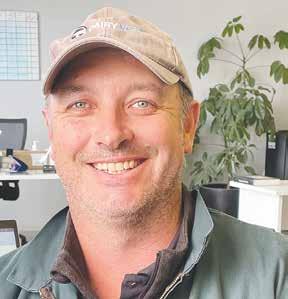
technicians.
“To reduce this risk, we feel that all animals on farms – cows, pregnant heifers, calves and other stock – should be vaccinated with Lepto 4-Way for the coming season and this is the vaccine we will be using.”
Leptospirosis is caused by a bacteria that
are spread from animal to human. Lepto is contracted most commonly through exposure to the urine of infected animals, either through direct contact or via contaminated water. The bacteria enter through cuts or grazes on the skin, or through the mucous membranes of eyes, nose and mouth.
Matt Wells, technical veterinarian at Virbac NZ, the registerer and distributor of Lepto 4-Way, says that in recent years New Zealand has seen an increase in cases of lepto in farmers and staff working on vaccinated farms, many of which are thought to be due to the new Pacifica strain.
Wells says vaccination of the herd is one of the most robust ways to reduce the risk of leptospirosis coming into the herd as well as rodent control, hygiene and personal care when working closely with animals and on farm, and other measures such as the fencing off access to waterways and strict control around effluent spreading.

later. This will include all pregnant cows, pregnant heifers (R2) and all replacement heifer calves, which will provide the necessary immune response against the new strain.
Wells says the impact lepto can have on farm is devastating, with severe flu symptoms in humans and in some cases debilitating illness requiring hospitalisation. A recent survey conducted by Massey University showed that half of those affected were still experiencing symptoms a staggering eight months after diagnosis.
There are different types of lepto, with cows often showing no clinical signs. This means that
working with dairy cows can pose a significant risk for contracting lepto, so preventing exposure is vital.
“Since the 1970s we have been fortunate to have highly effective cattle vaccines, which have reduced the rate of human infections dramatically.
“Unfortunately, in recent years we have seen cases of lepto in farmers and staff (including teat sealing technicians) working on vaccinated farms, many of which are thought to be due to the newly discovered strain of lepto within our dairy herds. This new strain, known as Pacifica, wasn’t covered by the traditional dairy cattle lepto vac-
All animals in the herd will need two doses of the vaccine: an initial dose, then a booster about four to six weeks DAIRY FARMERS can easily track the performance of their replacement heifers and ensure they reach their genetic potential.
Weighing technology can help farmers to meet crucial heifer liveweights at first mating and calving boosting in-calf rates and increasing milk production, says Gallagher head of animal performance and traceability Brian Rose.
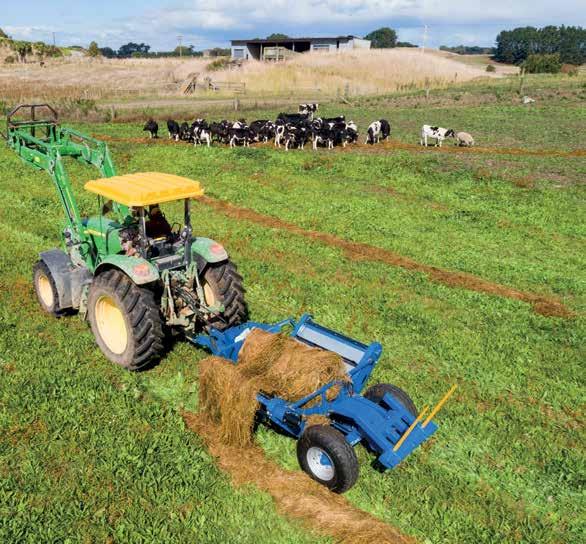

cines. Recent research suggests Pacifica could be present in almost three quarters of dairy herds throughout New Zealand.
“The new cattle vaccine, Lepto 4-Way, has recently been developed to provide an immune response against the emergence of Pacifica as well as the 3 strains (Hardjo, Pomona & Copenhageni) previously covered by the traditional vaccines. Sharing a similar mindset to Nathan at DairyVets, farmers and vets throughout the country have been choosing to switch or upgrade their lepto vaccine and vaccinate their cattle with Lepto 4-Way since it became available early February,” Wells says.
New data from LIC shows that too many farmers are not weighing their heifers when they return from grazing – and are missing out on big genetic gains as a result.
The data, collected from LIC’s MINDA software, showed that at 22 months, heifers on average are around 4-5% below MINDA guidelines. Best practice guidelines from DairyNZ suggest that at 22 months heifers should be at 90% of mature liveweight.
LIC believes the impact on farms is huge, leading to poor heifer fertility and
production. It means farmers are not maximising their return on investment from breeding the heifer and are risking her first-year production potential. Rose says while the statistics are not ideal, there is simple technology available that can help. He says electronic identification (EID) and weighing solutions are now able to give farmers accurate information on whether their heifers are meeting the targets. Each animal’s EID number is scanned using a portable hand-held tag reader or hands-free reader in the yards, which are connected to a compatible weigh scale to collect weights and other livestock records.
The target heifer weights and dates can be imported from MINDA, which means the farmer can see in real time if each individual heifer is on track to meet her targets. If not, it presents an opportunity to adjust management practices accordingly.
THINK OF a RAM 1500 or a Chevrolet Silverado and compare them to a Ranger or a Hilux: One is obviously a truck, and the other is a ute.
Take the same idea and apply it to sideby-sides, and you will see there are standard machines, then there is the recently released Polaris Ranger XD 1500, which creates a whole new category of its own: the Extreme Heavy Duty.
Along with its XD 1500 NorthStar Edition model, the XD 1500 is equipped with a 3-cylinder ProStar, fuel injected 1500cc engine pushing out 110hp and 142Nm torque, mated with the SteelDrive trans-
mission that, as the name suggests, uses a 100% steel constructed drive belt, that is fully sealed and liquid cooled.
As part of the package, the drive system offers on-demand, true all-wheel drive, 2WD, Turf and Ultra-Turf drive modes, complemented by Comfort, Standard, Sport and Tow/Haul settings.
Keeping things in check, drive mode specific functions include engine braking and hill assist – the latter allowing the vehicle to hold its position to enable easier manoeuvring and improved control when stopping or starting-off on slopes or hills.
Equipped with 29-inch diameter tyres on 14-inch rims, the 1500HD delivers
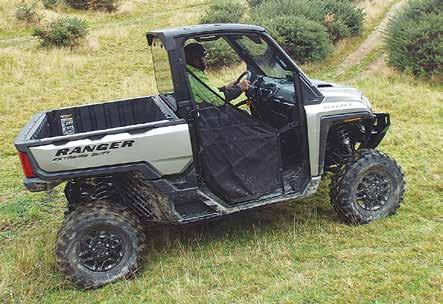
38cm of ground clearance and 30.4cm of suspension travel, centred around a system that uses dual A-arms up front and dual, arched A-arms at the rear. With a dry weight of 1122kg spread over a
241cm wheelbase, the vehicle feels very surefooted laterally, with a feeling of stability, while also delivering 680kg load and 1588kg towing capacity.
During a brief driving
THERE CAN’T be many heavy metal fans who haven’t heard of Basildon, situated about 40km east of London and originally created in 1948 to deal with the population boom after the Second World War.
At the heart of its industrial area, the Basildon tractor plant this year celebrates its 60th anniversary, and to mark the occasion New Holland has made a special, one-off version of the T7.300, that will be on display at exhibitions throughout the year.
Following a tradition that began with the Silver Jubilee 7810 in 1989 and the Golden Jubilee T6.180 and T7.270 tractors in 2014, the graphics on the T7.300 were created by CNH Centro Stile.
The livery is inspired by the colours and patterns of ‘Swinging
60s’ London, the time of psychedelia characterised by vivid hues of blue, yellow, maroon and pink across the hood and interior upholstery.
Setting out to modernise the production processes possible at its existing car and tractor plant at nearby Dagenham, the company was encouraged to develop a dedicated tractor facility on a 40ha greenfield.
Work began on April1960 to be completed in February 1964, with the opening coinciding with the launch of the 37-65hp Ford 6X tractor series, to be followed over time by the 7A1 ‘600 series’ tractors in 1975, that delivered the 2600 to the 7600 models, and the similar new quiet ‘Q cab’ the following year.
In 1981, these were updated to
the Series 10, with later Force II (1986) and Generation III (1989) evolutions. Late 1991 saw the launch of the 40 series that would later be sold with new branding when Fiat purchased the Ford New Holland agricultural equipment business that year and adopted New Holland as its brand for the future.
Subsequently the plant produced New Holland TS, TM, T6000 and T7000 tractor lines, and today manufactures the T6 and T7 ranges, spanning 125-300hp. Today the plant is the only volume tractor producer in the UK, with a completed tractor rolling off the production line every five minutes, with over 10,000 different specification possibilities and around 85% exported around the world.
– Mark Danielsession under the shadows of the ever-expanding wind farms to the east of Palmerston North, it certainly appears large, but once on the move, shows no signs of being unwieldy. Indeed, after
a brief period, the XD inspires confidence in both its travelling and climbing ability, crossing deep drains and climbing very steep slopes with ease, while always being in control.
As one would expect with 110hp on tap, power was never an issue, even on the steepest, longest climbs, while throttle response at slow speeds was infinitely controllable. Coupled with the silky-smooth power steering, it made new acquaintances feel at home quickly.
In the cabin, increased legroom makes entry and exit easier, as does the new bottom-mounting system for the door nets that previously created a trip hazard. Adjustable
seating and a telescopic steering wheel allow users to get comfortable, while the additional bolstering to the side of the seats inspires confidence and a flip-down centre seat gives driver and passenger the obligatory cup holders.
Certainly more expensive than more normal side-by-sides, the XD 1500 certainly makes a lot of sense for those carrying heavy loads or working on terrain that is too much for standard machines.
Given that they are less expensive than many of the higher-specified utes in the marketplace, they certainly warrant a closer look.
www.polarisnewzealand. com



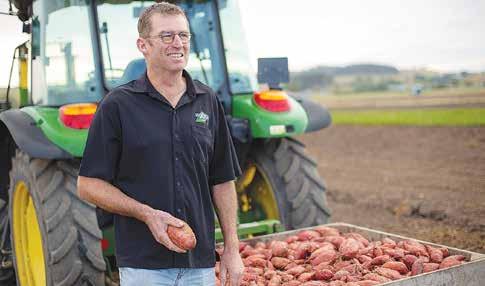
and
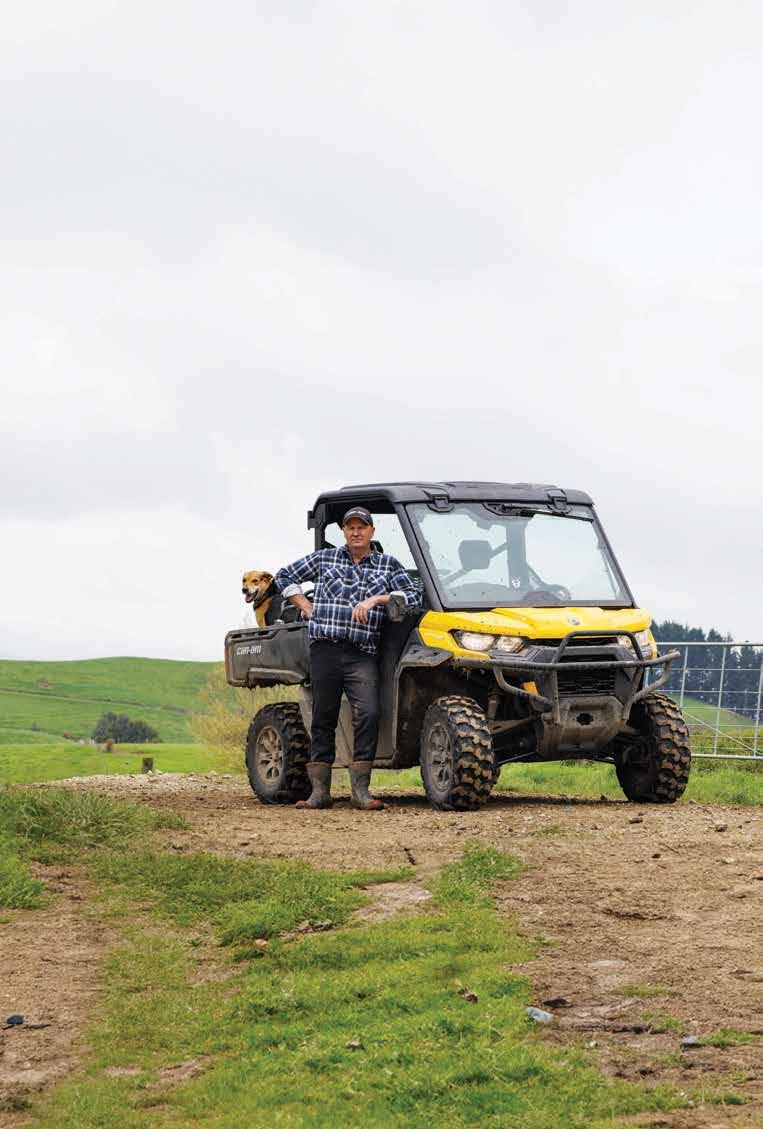
his family at Riverview Farms, Dargaville, are one of New Zealand’s leading suppliers of kumara.
Located two-and-ahalf hours north-west of Auckland, the 200ha farm crops around 60ha of kumara and also fattens prime lambs and beef cattle.
Using the local Delta Co-op to pack, market and transport the family’s crop throughout NZ, the Paxton’s know it’s critical they keep their machines humming.
“If we do have a breakdown, especially on a key tractor like the 7230 or 7290 we use for groundwork, or our moulding or spray tractors, it pretty much stops the whole day. Until they’re fixed, we’re under the pump,” says Evan.
“Thankfully, breakdowns are rare, but if we’re working towards a weather window or trying to fill orders from the packhouse, they can have a huge financial bearing on our company.”
Established in 2001, Evan and partner Tanya joined forces with his mother Judy, brother-inlaw Graham and his wife Twane to create a true family business.
Over the ensuing years, as the business grew, the Paxtons became staunch fans of the green and yellow, running a fleet of 12 John Deeres, ranging from 70hp to 290hp, and in March took delivery of its thirteenth tractor from local dealer Brandt Machinery in Whangarei.
The new 6120M utility tractor with AutoTracTM replaced the businesses’ very first John Deere, a 6400 that was bought
back in 1994.
“A small compact tractor like the 6210M with 120hp is ideal,” says Evan. “We can use it to pull a three-metre machine for harvesting, and for dayto-day crop maintenance, whether it’s spraying and dry cultivating or top chopping.”
Realising that maintenance plays an important part in the John Deere’s reliability, Evan also considers quality lubricants are a key factor in maintaining his fleet.
“The old 6400 we’ve just traded-in had done over 13,000 hours and we have had absolutely no issues with the engine, just a few little bits and pieces, as you would expect,” Evan said.
“Over the past 10 years, we have exclusively used JD transmission, hydraulic and engine oils and grease, and we’ve noticed a significant difference with the running of the machines, especially using the grease on our harvesters and tractors as well.”
Evan uses Plus-50 II Engine Oil, Hy-Gard hydraulic oil and SD polyurea grease. He says the 500-hour service interval is also a game changer and although a few tractors might go over when they are busy, they’ve had no issues to date.
“I personally wouldn’t recommend using a cheap oil, as at the end of the day, quality pays, meaning the machines are working and not sitting in the shed. I think when times are tough, people might look for a cheaper product, but for us, it’s more about peace of mind. We know your tractors are in safe hands.”

WHILE NOKIA is more likely recognised for mobile devices, a major investment of €70m (NZ$126m) by global farm machinery brand AGCO at its facility in Linnavuori, in Nokia, will see the plant establish a new laboratory for testing combustion engines running on alternative fuels, alongside a range of electric solutions, including hybrids, fuel cells and high-voltage battery technology.
Building on more than €100 million already spent at the plant over the past five years, and where around 1000 staff are employed, the new 11,000m² buildings will be completed through 2024/25.
They will include a training and visitor centre, a production hall for machining cylinder heads and manufacturing CVT components, alongside a new paint shop and testing capabilities for remanufactured engines. The new production hall will also house a

new machining line with a high degree of automation for manufacturing the cylinder heads of AGCO CORE engines.
The €70 million investment will also allow the facility to expand the manufacturing of CVT components for AGCO’s Fendt, Massey Ferguson and Valtra brands, with plans to produce more high precision transmission components.
Juha Tervala, managing director of AGCO Power, says that the investment will allow the company to grow its remanufacturing capabilities.
“Remanufactured products are stripped
down to their individual components, inspected, cleaned and fully rebuilt. We have remanufactured used engines toward a circular economy since 1990. Any product improvements are based on the latest revision, as they are repaired, before the thor-

oughly tested and painted engine is signed off with a full factory warranty.”
Tervala says that the facility currently produces around one million gear wheels and axles annually, but this will double after the new facilities come fully on stream.
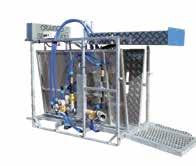
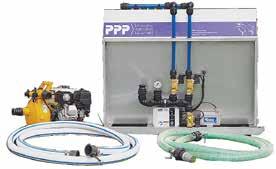

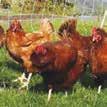






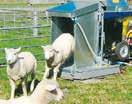
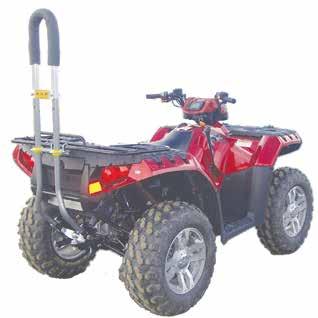

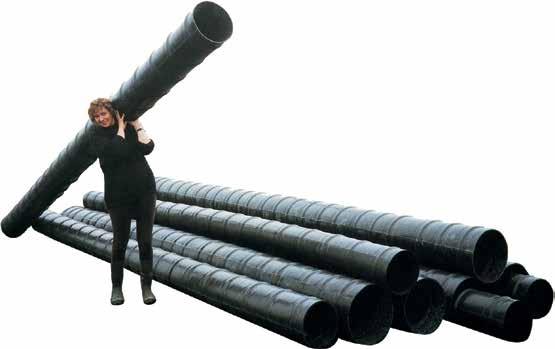




















 Ford Supreme New Zealand Rural Sportsperson Award
Jack Jordan of Taumarunui - Timbersports
PTS Logistics New Zealand Rural Sportsman of the Year Award
Jack Jordan of Taumarunui - Timbersports
The RX Plastics New Zealand Rural Sportswoman of the Year Award
Anne Paterson expat of Greymouth now from from Blackbutt, QueenslandTimbersports
The Freebairn & Hehir Lawyers Outstanding Contribution to New Zealand Rural Sports Award
Nigel Armstrong of Christchurch - Harness Racing
Bronwyn Troon of Taihape - Gumboot Throwing
Erana Stevens-Tulip of Te Kuiti - Shearing
Courtesy Ford Lifetime Legacy Award
Pat Hellier from Kamo but living in Papamoa - Highland Games
Wayne Newdick from Taumarunui - Fencing
The Fonterra Young New Zealand Rural Sportsperson of the Year Award
Clay Harris from Mokauiti in the King Country - Shearing Sports
Future Post Rural Sportsperson with a Disability
Grant Calder of Lauder Station in Central Otago - Sheep Dog Trials
The Sir Brian Lochore Memorial Award for Outstanding Sportsperson from a Rural Background supported by Higgins Concrete
Zoe Hobbs of Auckland but was raised in Stratford and New PlymouthSprinter
Ford Supreme New Zealand Rural Sportsperson Award
Jack Jordan of Taumarunui - Timbersports
PTS Logistics New Zealand Rural Sportsman of the Year Award
Jack Jordan of Taumarunui - Timbersports
The RX Plastics New Zealand Rural Sportswoman of the Year Award
Anne Paterson expat of Greymouth now from from Blackbutt, QueenslandTimbersports
The Freebairn & Hehir Lawyers Outstanding Contribution to New Zealand Rural Sports Award
Nigel Armstrong of Christchurch - Harness Racing
Bronwyn Troon of Taihape - Gumboot Throwing
Erana Stevens-Tulip of Te Kuiti - Shearing
Courtesy Ford Lifetime Legacy Award
Pat Hellier from Kamo but living in Papamoa - Highland Games
Wayne Newdick from Taumarunui - Fencing
The Fonterra Young New Zealand Rural Sportsperson of the Year Award
Clay Harris from Mokauiti in the King Country - Shearing Sports
Future Post Rural Sportsperson with a Disability
Grant Calder of Lauder Station in Central Otago - Sheep Dog Trials
The Sir Brian Lochore Memorial Award for Outstanding Sportsperson from a Rural Background supported by Higgins Concrete
Zoe Hobbs of Auckland but was raised in Stratford and New PlymouthSprinter